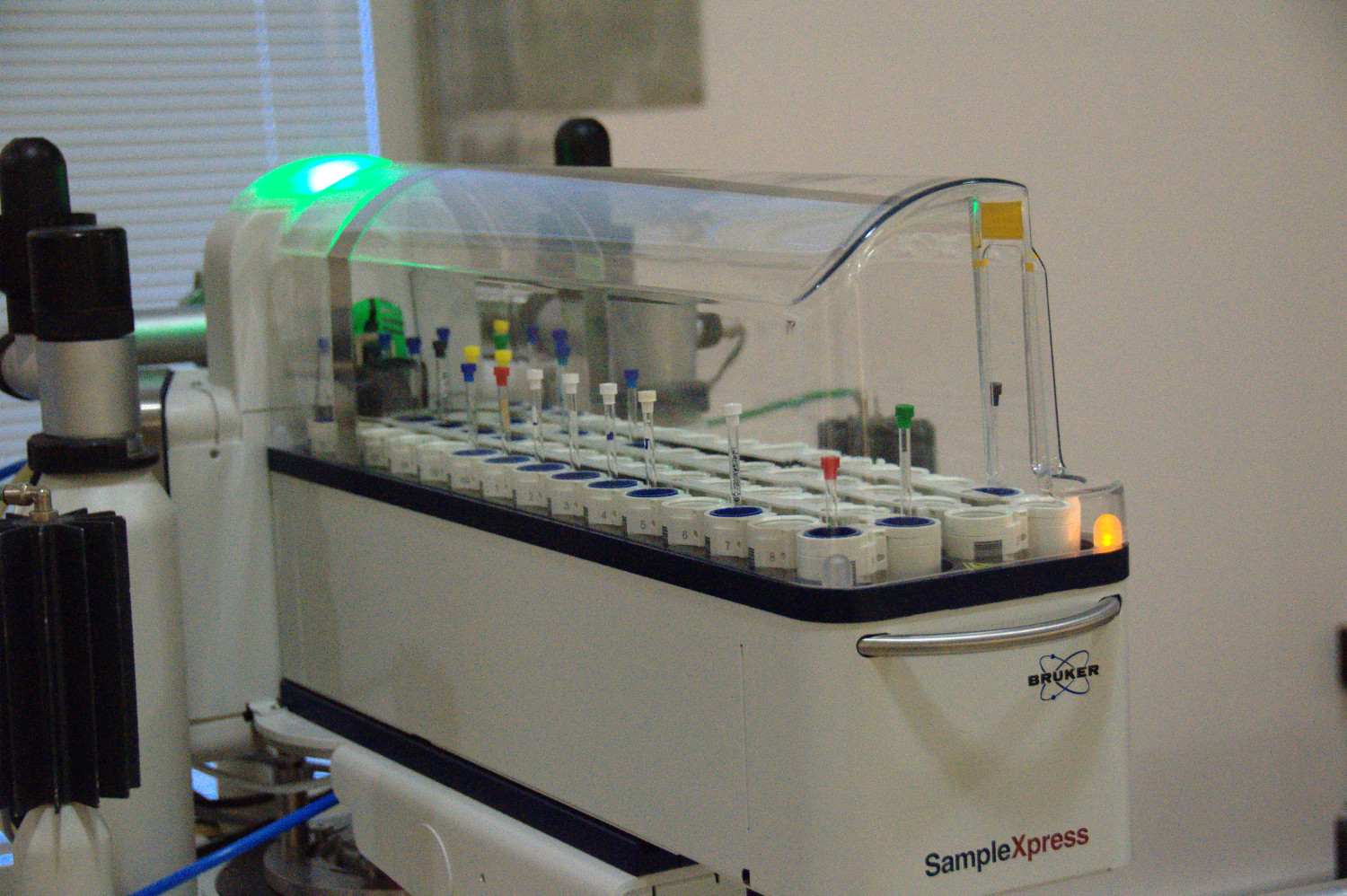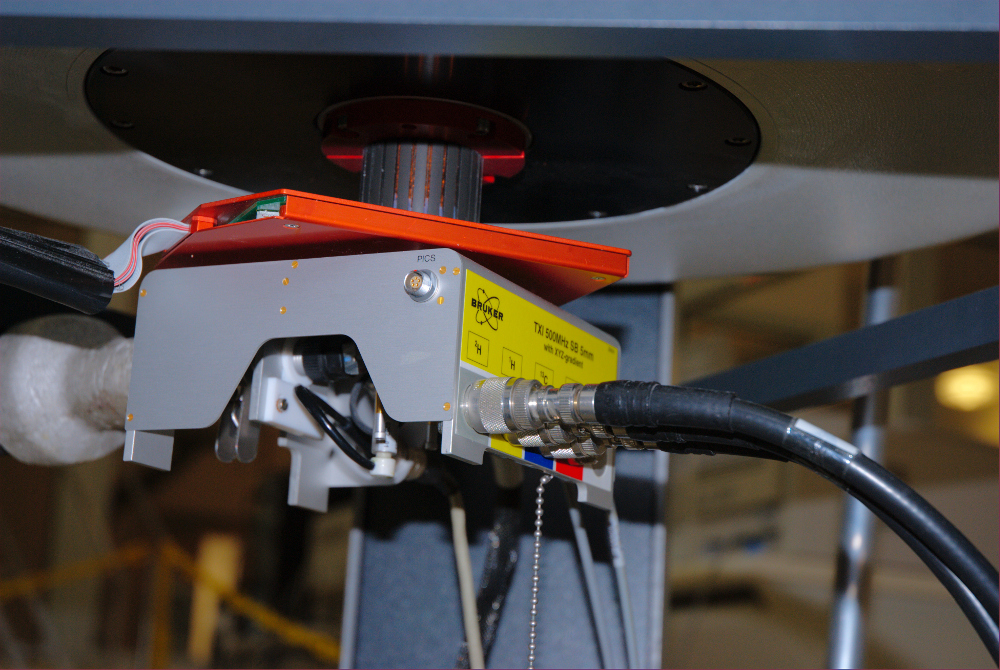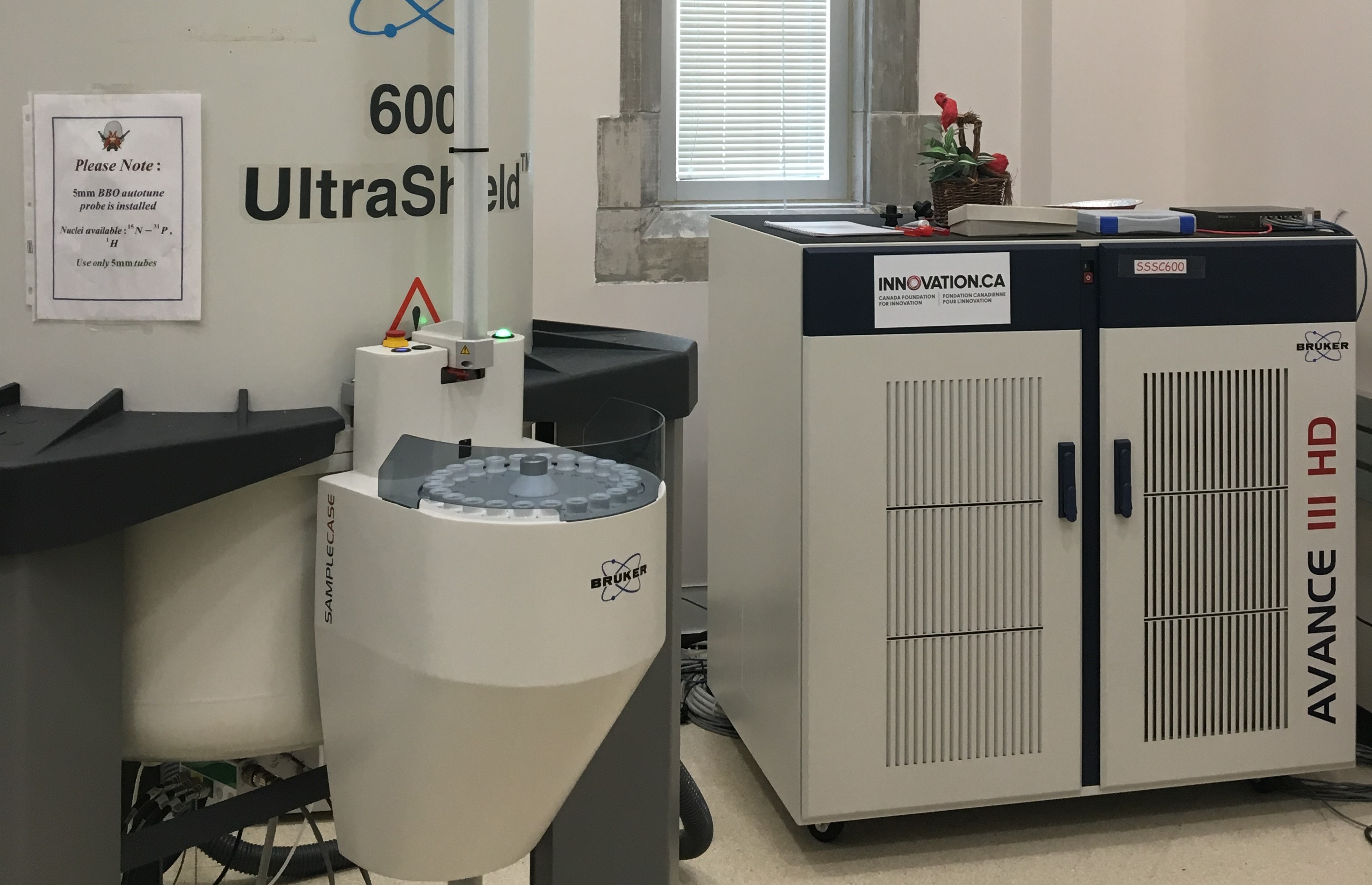Nuclear Magnetic Resonance Laboratory
About the Laboratory
Nuclear magnetic resonance spectroscopy is a non-desctructive interdisciplinary technique. Typical researchers come from a wide range of disciplines such as chemistry, geology, biochemistry, biology, pharmacy, or engineering. The technique has many useful applications:
- structural connectivity of atoms within molecules
- spacial orientation of atoms within molecules
- solids
- metabolomics
- diffusion constants in solution
- molecular relaxation characteristics
- kinetic parameters of molecular exchange and interchange
This laboratory has three 500 MHz spectrometers and one 600 MHz spectrometer.
Laboratory Contact
Location:
|
500MHz NMR |
G89 |
|
600MHz NMR |
G93 |
Phone Number:
|
500MHz NMR |
(306) 966-4630 |
|
600MHz NMR |
(306) 966-1726 |
Laboratory Managers:
Instruments In Lab
The Bruker Avance 500 MHz spectrometer is a 3-channel NMR system, equipped with a BACS-60 sample changer and variable temperature capability. A Bruker 5mm TXI probe is usually installed. Therefore, it is not preferable for C-13 observing experiments.
For more detailed information, click here.
The Bruker Avance III HD 500 MHz spectrometer is a 3-channel NMR system, equipped with an Agilent HPLC for separation of mixtures and then acquiring NMR data of the fractions (LC-NMR). It is also equipped with a Bruker HR-MAS probe and a DOTY CP/MAS probe. A Bruker 5mm BBFO probe is usually installed, tunable to most BB-channel nuclei (including F-19).
For more detailed information, click here.
The Bruker Avance 500 MHz spectrometer is a 2-channel NMR system, equipped with a SampleXpress-60 sample changer. It runs Automation NMR experiments via IconNMR, with a Bruker 5mm BBO probe.
For more detailed information, click here.
The Bruker Avance III HD 600 MHz spectrometer is a 3-channel NMR system, equipped with a SampleCase-24 sample changer and variable temperature capability. A Bruker 5mm BBO probe is usually installed, tunable to most BB-channel nuclei (excluding F-19).
For more detailed information, click here.
The Nanalysis NMReady-60PRO benchtop NMR operates on a 1.40 T permanent magnet (1H frequency 60 MHz), with either 1H/13C or 1H/13P capability. Samples are loaded with standard 5mm NMR tubes. A 1H sensitivity of 100 can be reached for 1% ethylbenzene sample, with a resolution < 0.7 Hz. For more information, click here.
The Burker minispec MQ-10 is a time domain NMR analyzer, operating at the 1H frequency of 10 MHz (0.23 T). Samples, with no preparation needed, are loaded with a glass tube of 40mm in diameter (optimal sample size ~45mL). It is commonly applied to measure oil/moisture contents in seeds, solid fat content (SFC) in food, and relaxation time. For more applications, click here.
Laboratory Training
Learning to use one of the manually operated NMR spectrometers is analogous to learning to fly a jet fighter! Not what one usually does without having at least learned to fly a small plane. We recommend starting on the autosampler instrument and then graduating to one of the other spectrometers. There is much to learn and it is best done in small bits. Please contact Dr. Jianfeng Zhu to arrange a training session.Introduction to TopSpin
Training Resources
Online courses
- Professor James S. Nowich (UC Irvine), Organic Spectroscopy
- Dr. James Keeler (Cambridge), Understanding NMR Spectroscopy
- Professor Malcolm Levitt et al., Spin Dynamics (solid state NMR)
- Dr. Joseph P. Hornak (RIT), The Basics of NMR
- Professor Hans J. Reich (Wisconsin), Structure Determination Using NMR.





